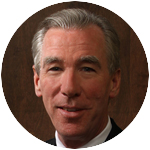
John Garvey
It might just be a reflection of my own intellectual preoccupations, but I can’t help but notice some parallels in our efforts to end both police racism and clergy sexual abuse. One concerns the way we frame the problem.
In 2018, there were 7,407 African American homicide victims in the United States. For purposes of comparison, police fatally shot 14 unarmed blacks (and 25 whites) in 2019, according to the Washington Post.
Why, then, do the killings of George Floyd and Rayshard Brooks evoke so much more outrage than the thousands of other fatal acts of criminal violence against African Americans?
I remember asking a similar question about clergy sexual abuse in 2018. That year the Center for Applied Research in the Apostolate reported that in the three-year period from 2015-2017, across the entire country, there were an average of just seven new incidents of abuse per year charged against Catholic priests.
By contrast, in 2017 alone, just in the Commonwealth of Pennsylvania (whose grand jury report caused such furor), 42 school teachers lost their licenses for sexual misconduct. Why was all the outrage directed against clergy?
[hotblock]
Well, here’s why. The offending priests were ordained to act in the place of Christ to their congregations, and they had behaved like the devil himself. The Nicene Creed proclaims that the church is holy, but how can that be, when people like this are performing its sacraments?
I said at that time that it would take 50 years for the church to recover its moral authority. Fewer Catholics are going to Mass. The church’s teaching on issues of life and family is dismissed or ridiculed. Parents won’t let their children become altar servers. They have to talk to them about “boundaries.”
That’s how it is with the police. It doesn’t help to say there are more criminals on the street than in the Atlanta and Minneapolis Police Departments. The departments’ job is to keep people safe.
The motto of the Minneapolis police is “To Protect with Courage, To Serve with Compassion.” What’s compassionate about kneeling on a man’s neck until he dies? No wonder black parents feel obliged to give their children “the talk” about interactions with police.
Here’s a second thing. The 2018 story in the Catholic Church was about bishops, more than it was about priests; about oversight of the offenders, not the primary offenses.
The Pennsylvania grand jury report condemned the episcopacy for its failure to supervise abusing priests. The bishops were criticized roundly for drafting a Dallas Charter that excluded themselves from scrutiny by review boards.
This is also where we should turn our attention in the present controversy. Erika Shields, the police chief in Atlanta, resigned hours after a white officer shot and killed Rayshard Brooks. The officer had multiple prior citizen complaints against him.
The mayor of Louisville fired his chief after two killings this spring, Breonna Taylor in March and David McAtee in June. None of the officers involved in Taylor’s or McAtee’s deaths used body cams.
Medaria Arradondo, the chief in Minneapolis, is himself black; he acted quickly to fire the offending cops and reached out to George Floyd’s family. But the officer who killed Floyd had 18 prior complaints of misconduct and excessive force during his career. That should have been a sign to someone up the chain of command.
There’s a phrase in Juvenal’s “Satires” that might be translated as “Who will guard the guardians?” (“Quis custodiet ipsos custodes?”) That’s the right question to ask for both police racism and clergy abuse. The solution is not to defund the police, or to destroy the church. It is to oversee our institutions, and hold them accountable.
***
Garvey is president of The Catholic University of America in Washington. Follow him on Twitter @CatholicPres. Catholic University’s website is www.cua.edu.
PREVIOUS: Pandemic’s lesson: We are not in charge, God is
NEXT: May this moment of suffering heal our broken vision of the other



Share this story